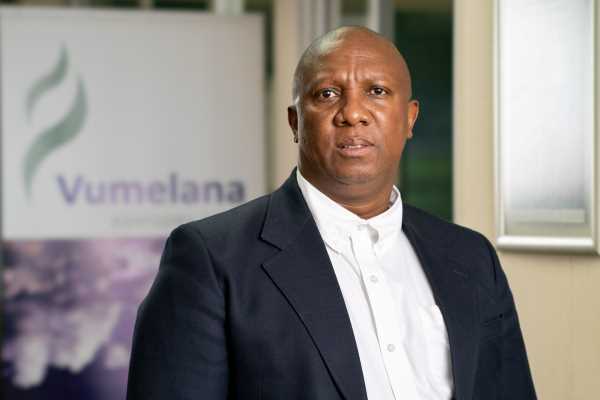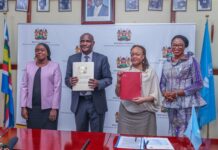Land Reform – As South Africa moves towards establishing effective post-settlement support for land reform beneficiaries, a dedicated endeavour to introduce innovative funding models can propel the country forward, says Peter Setou, Chief Executive of the Vumelana Advisory Fund. Vumelana is a non-profit organisation that helps beneficiaries of the land reform programme to put their land to profitable use.
According to Setou, “The funding landscape for land reform in South Africa is complex, and the availability and allocation of resources has varied over time.”
Over the years, South Africa’s land reform has been funded through government funding programmes such as the Land Redistribution and Agricultural Development (LRAD) programme, a government initiative designed to provide financial and other support to beneficiaries of land redistribution. The programme provides financial assistance for land acquisition, infrastructure development, and capacity building to enable successful agricultural operations on redistributed land.
Setou highlights that one of the major challenges in South Africa is the disproportionate emphasis on land redistribution, with insufficient attention given to the vital aspect of post-settlement support. Post-settlement support is a crucial element of comprehensive land reform, yet it has not received the necessary engagement and resources it deserves. As a result, many beneficiaries of land reform find themselves in a predicament, as they possess land but lack the resources and support to effectively utilise it.
The diminishing government support exacerbates the situation, leaving these beneficiaries stranded and unable to kickstart their land enterprises. This predicament not only hinders the productive use of land but also poses significant obstacles to the success and sustainability of land reform initiatives.
Setou emphasises that achieving a comprehensive funding programme for post-settlement support requires a strategic blend of innovative financing mechanisms, partnerships, and collaboration with diverse stakeholder groups.
“Considering the limitations of funding available for post-settlement support, rather than reinventing the wheel such a programme should concentrate on scaling up existing funding models that have successfully been tested, and on enhancing relationships to guarantee the enduring sustainability of land reform,” says Setou.
By actively seeking innovative financing mechanisms, South Africa can address the resource gap and secure sustainable funding for post-settlement support initiatives. This may involve forging partnerships with public and private entities, leveraging the expertise and financial resources from different sectors, and fostering collaboration among stakeholders to maximise the impact of available funding.
According to Setou, the success of land reform ultimately hinges on the ability to provide comprehensive and sustained post-settlement support.
“Post settlement support should be prioritised as a national imperative to ensure that beneficiaries have access to the financial means, skills development, markets and other resources required for the successful productive use of land. This will support efforts to lay a strong foundation for the long-term success of land reform and create a sustainable future by developing rural economies,” Setou says.
Since 2012, Vumelana has facilitated 26 partnerships between land reform beneficiary communities and private investors through its Community Private Partnership Model (CPP). Through the CPP model, Vumelana has been able to put approximately 70 000 hectares of land to productive use, benefiting in excess of 20 000 beneficiary households and attracted in excess of R1 billion rands in potential investments.
The CPP model aims to facilitate partnerships between land reform beneficiaries and private investors. The private investors bring capital, access to markets and can share their skills to enable communities to reach a point where they can independently run their land successfully with the skills they acquire from the partnership.
Through CPP agreements, beneficiaries are empowered to enhance the productive utilisation of land, to generate income, leading to a notable increase in their contribution to the country’s employment initiatives.
Other funding sources for land reform can include impactful investment, as impact investors aim to generate both financial returns and positive social and environmental outcomes. This can play a significant role in supporting land reform initiatives, as this type of investment combines capital and expertise from the public, private, and not-for-profit sectors to achieve social objectives. However, the government needs to create a conducive environment that encourages and facilitates impactful investment in the relevant sectors of the economy.
“This can be achieved through strategic incentives and partnerships that promote and attract socially responsible investors,” says Setou.
He adds that by leveraging the potential of impact investment, South Africa can bolster its post-settlement support initiatives, empower beneficiaries, and drive positive change in the land reform programme, while attracting capital from investors who are passionate about making a difference.
Setou argues that this will not only benefit the beneficiaries but also promote economic growth, enable the productive use of land and drive the sustainability of land reform.
Setou highlights that in addition, the country can leverage the potential of philanthropic organisations that have a proven history of offering financial assistance for land reform support and have a keen interest in backing such initiatives.
He argues that these institutions can provide support in the form of grants, loans, or various forms of aid to beneficiaries of land reform for post-settlement support to assist communities in establishing and expanding their land enterprises.
Another emerging source of funding is crowdfunding, where organisations can solicit financial support from individuals and businesses to utilise such funds for a specific cause. This presents another potential avenue for post-settlement funding, which can also involve ordinary citizens eager to play a role in making a difference in the land reform programme by providing capital to beneficiaries to enable the productive use of their land, generate income to create employment, and reduce the vulnerability of the market.
Setou highlights that various countries such as Madagascar, Rwanda and Zambia, among others, have effectively built capacity and expertise in commercial farming through similar funding schemes. Nevertheless, it is important to recognise that each country has its unique complexities, and there is no universal model that can be applied across the board.
“Arguably, these innovative strategies for funding land reform can empower communities to augment their income, reduce poverty, and enhance their overall well-being,” concludes Setou.









